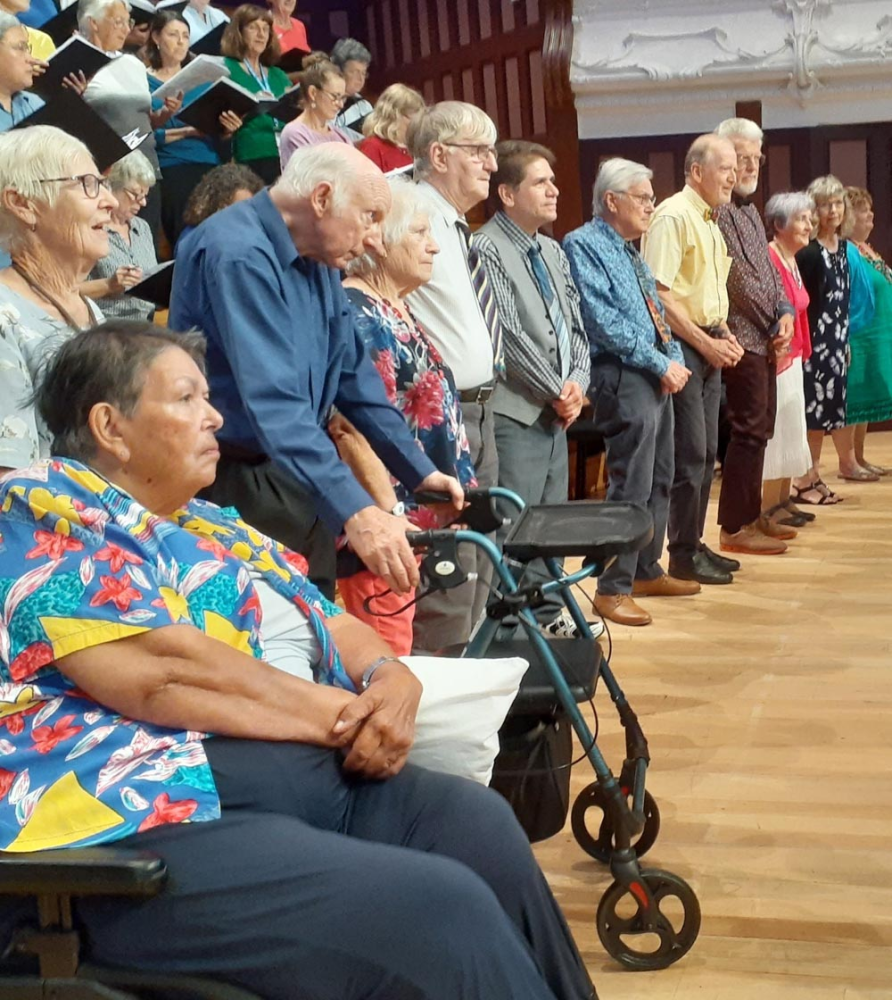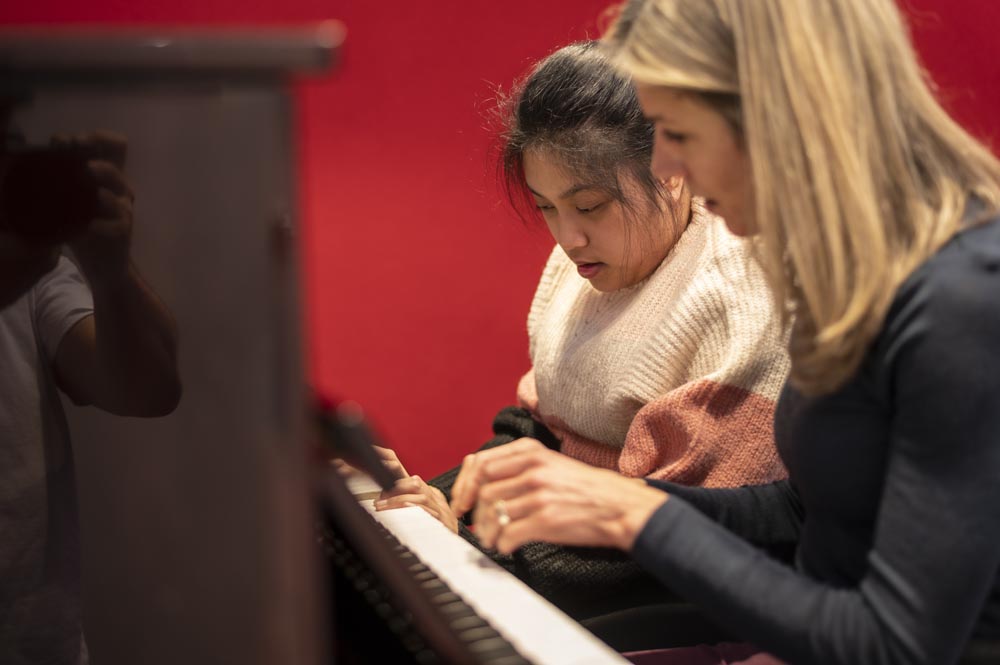Raising awareness about music therapy and providing greater access to its benefits is a key focus of Music Therapy Week 2024, running from 10 to 15 April throughout New Zealand.
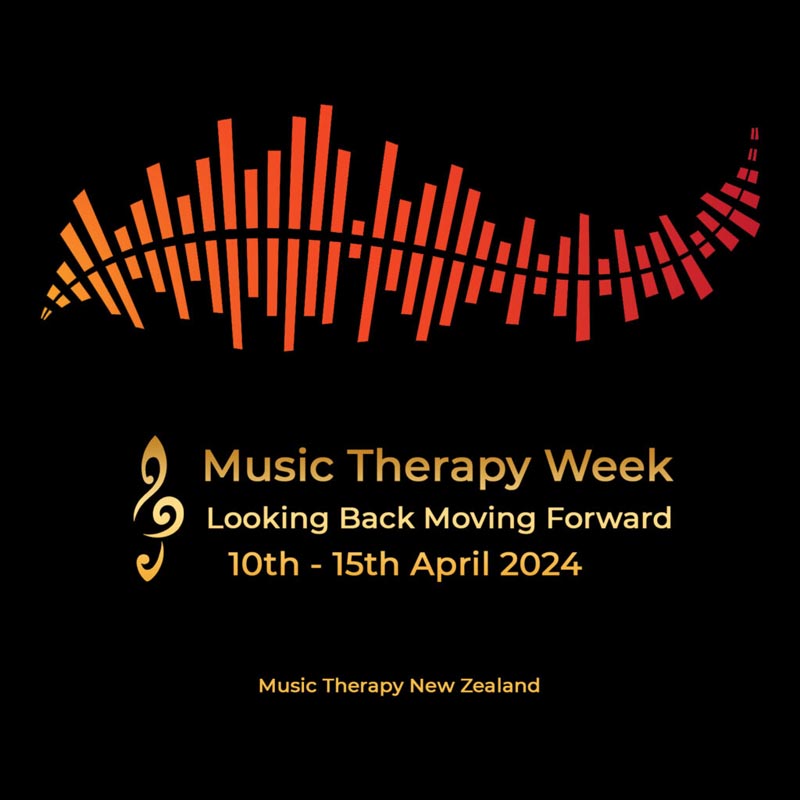 The theme of Music Therapy Week 2024 is "Looking Back Moving Forward”, which reflects the timeline and history of the profession and acknowledges the people working towards the growth of music therapy in New Zealand.
The theme of Music Therapy Week 2024 is "Looking Back Moving Forward”, which reflects the timeline and history of the profession and acknowledges the people working towards the growth of music therapy in New Zealand.
Enabling greater access to music therapy in New Zealand is important, says Auckland registered music therapist Alison Talmage. Although New Zealand’s population is low compared to many other countries, it is spread out.
“Many people living in rural areas can’t access services that are common in more densely populated cities,” Alison says. “We want to have registered music therapists available everywhere and remove financial and geographical barriers to our services.”
Music therapy takes a flexible approach that fosters healing and personal growth for its participants, Alison says. It serves diverse communities and meets a range of different emotional, intellectual, physical and social needs.
Music an engaging medium
Music is an engaging medium for most people of all ages and backgrounds, and participants of music therapy don't need previous musical training or experience.
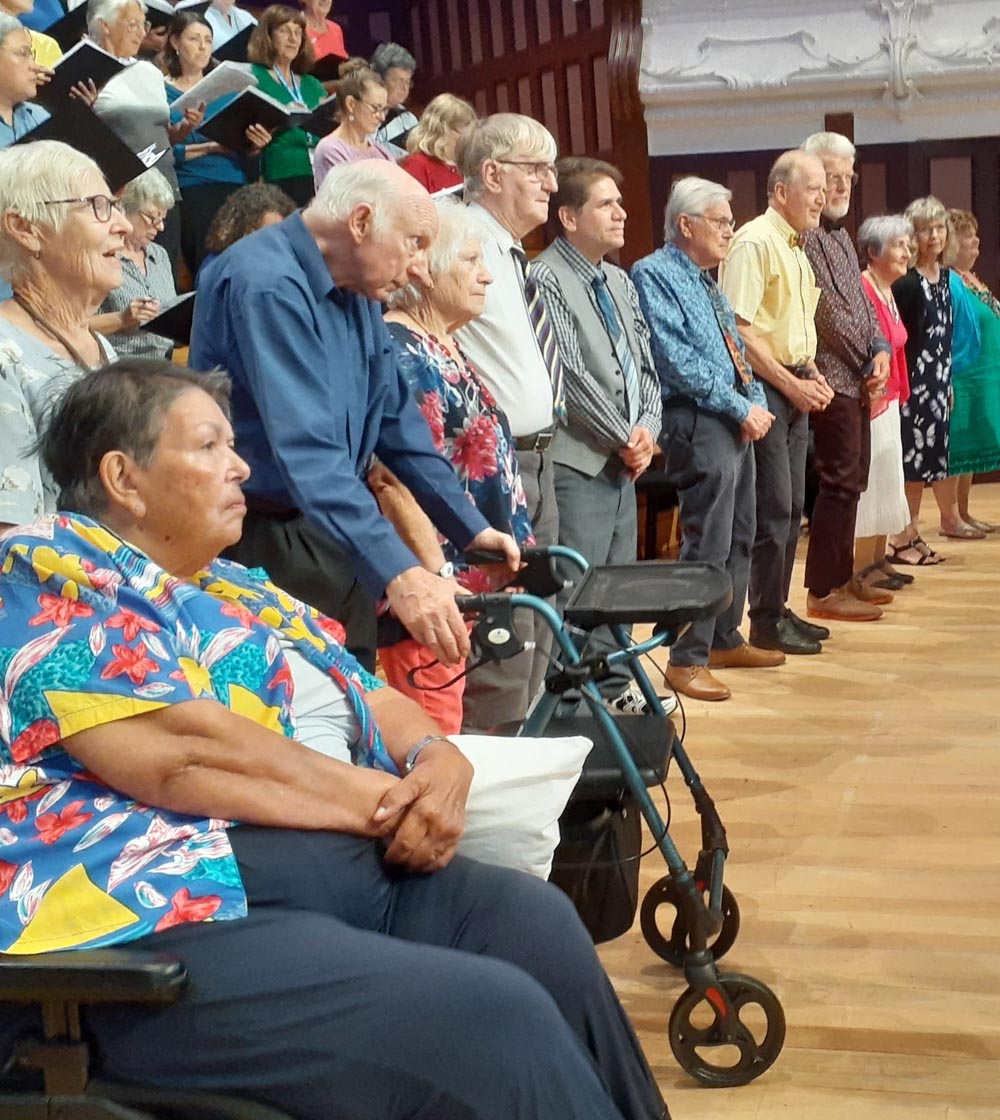 "Registered music therapists utilise a planned and intentional use of music to work towards the hopes, expectations and preferences of participants," Alison explains.
"Registered music therapists utilise a planned and intentional use of music to work towards the hopes, expectations and preferences of participants," Alison explains.
Currently undertaking her PhD at the University of Auckland, Alison says the focus of her thesis is on singing groups – or "neurological choirs" – for people with neurological conditions such as stroke, Parkinson's and dementia.
The main result of her PhD will be a handbook to guide her practice and support other choir leaders in using music therapy.
Alison co-founded the CeleBRation Choir in 2009 at the University of Auckland's Centre for Brain Research and then founded Sing Up Rodney in 2017 in Orewa. She has also worked with a diverse range of individuals in different settings such as schools, a music therapy centre and in private practice.
"The CeleBRation Choir sings regularly in rest homes and retirement villages,” she says. “Various participants help with things like managing the sign-in sheet, editing audio recordings and befriending new members."
Both rewarding and challenging
Music therapy is both a deeply rewarding and challenging line of work. "The rewarding parts are the smiles on participants’ faces and supporting them to participate and work at things they find difficult,” Alison says.
“But limited public awareness and lack of funding remain constant challenges. Funding for people with disabilities or high health needs is precarious. For people ‘not in the know’ music therapy can seem like a frill rather than a valuable, evidence-based form of support.”
Fortunately, Alison says, the CeleBRation Choir is funded by philanthropic funding at the Centre for Brain Research. And she recently received a Music Therapy New Zealand grant to re-start the Sing Up Rodney group in Warkworth.
Raukatauri Music Therapy Centre
Also based in Auckland, Raukatauri Music Therapy Centre was founded in 2004 by singer/songwriter Dame Hinewehi Mohi and is celebrating its twentieth anniversary this year.
It now has centres and satellite locations in Northland, Bay of Plenty and the Hawke’s Bay, and works with approximately one thousand clients each week. Watch Sunday Healing lives through music | Sunday Investigates | TVNZ+
In addition, Raukatauri’s Hawke’s Bay and Auckland centres facilitate prison-based outreach programmes, funded over 2023 to 2025 through the Creative Arts and Cultural Wellbeing Prison Initiative. This is a $3 million fund provided by Manatū Taonga in partnership with the Department of Corrections.
Registered music therapist Ella Polczyk is working with men in Hawkes Bay Regional Prison. She says the positive changes in the mood and wellbeing of the men participating in her sessions are significant.
"Whatever they do together during their sessions, which are mostly one-to-one, the goal is the same – to use their inborn responsiveness to music to help them grow and heal," she says.
Fostering a supportive environment for people of all backgrounds
Alison Talmage says that music therapy is an inclusive practice that fosters a supportive environment for people of all backgrounds. It also brings people together as participants often attend music therapy sessions with their partner, family members or friends.
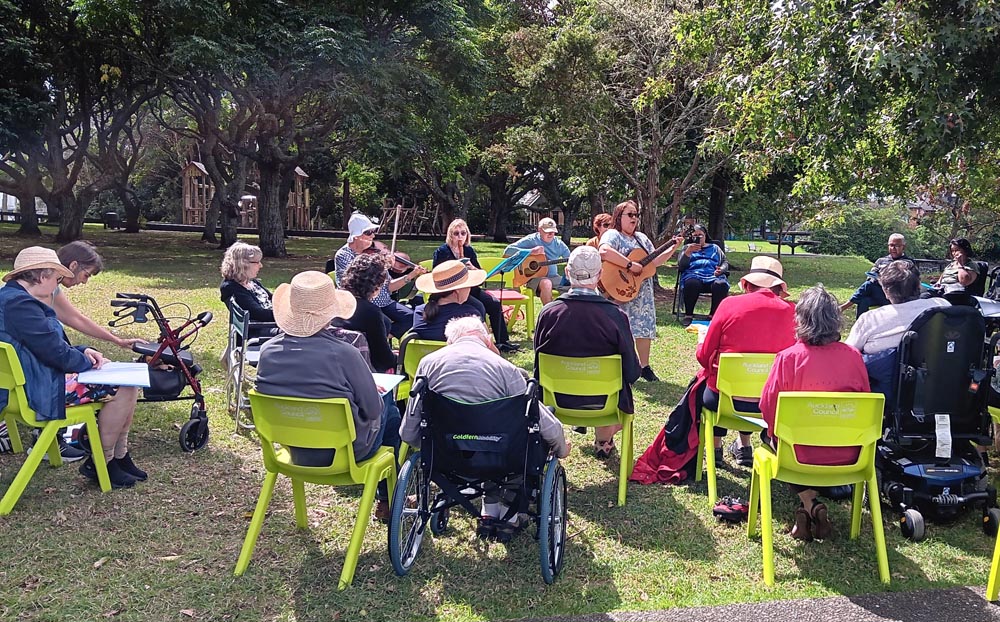 This provides meaningful shared experiences at times when other daily activities may have become difficult.
This provides meaningful shared experiences at times when other daily activities may have become difficult.
"We’re always mindful of social and cultural needs such as bringing whānau to choir, sharing morning or afternoon tea, enabling singers to have a say in the repertoire, and ensuring we have permission to sing cultural songs," Alison says.
There is a general awareness that music is good for us emotionally, mentally and socially, Alison says, and music therapy raises specific awareness of why this is. "As registered music therapists, our training teaches us to use all the elements of music to foster engagement, relationships and goal-oriented activities that align with participants' values.
“Music is enjoyable and connects us with our feelings, our bodies, our inner self and other people. Rather than using a single area of the brain, music connects many regions of the brain and connects our brains and bodies. It helps us move, use our voices, and manage our emotions and wellbeing.”
Music therapy is a small but steadily growing profession that deserves more recognition and awareness, Alison says.
“Our vision is for music therapy to be accessible and affordable for everyone who might benefit, while also receiving greater recognition for our skilled work.”
Music Therapy New Zealand discusses the theme and significance behind this year's Music Therapy Week.

